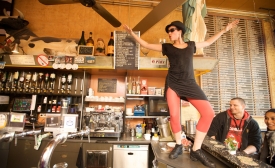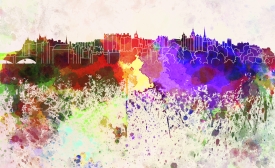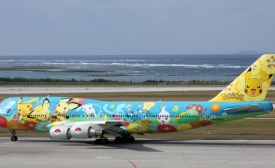soft power

The Short+Sweet Theatre Festival shows what citizen diplomacy can achieve.
China had earned a great deal of soft power by hosting the high-level summit. Soft power, or the non-military influence that a country and its culture can have around the globe, has been a matter of focus in certain sections of the Chinese foreign policy establishment.

In the wake of the Edinburgh International Culture Summit, how can we think about cultural diplomacy?
Taiwan’s “soft power,” an intangible attraction based on the ideals and principles an actor – a government, country, organization, or individual- values, stands for, projects, and how the actor behaves at home and abroad. [...] Why is Taiwan still unable to connect with international audiences? Taiwan’s external communications are failing to help the island transit from the invisible to the visible.
The Ministry of Defence should be congratulated not only for taking this most important initiative to hold this Seminar and for the sixth consecutive year, but also for the deciding on a topic “Soft power and its influence on global issues” which is most relevant to the world at this particular time, for Soft Power is essentially the power of Diplomacy which lays absolute emphasis on persuasion, and is the need of the hour.

Japan's cultural appeal is at its best when the government takes a hands-off approach.
On Saturday, Japanese Prime Minister Shinzo Abe told an audience of African leaders at the sixth Tokyo International Conference on African Development (TICAD) in Kenya’s capital Nairobi that his country will spend $30 billion on infrastructure development, healthcare and education projects in Africa over the next three years:
Tokyo stole the show at the Olympic closing ceremony in Rio de Janeiro this week as the event's next host city prepares for a cultural charm offensive ahead of the 2020 Games. In a surprise move, Japanese Prime Minister Shinzo Abe dressed up as Super Mario at the ceremony







